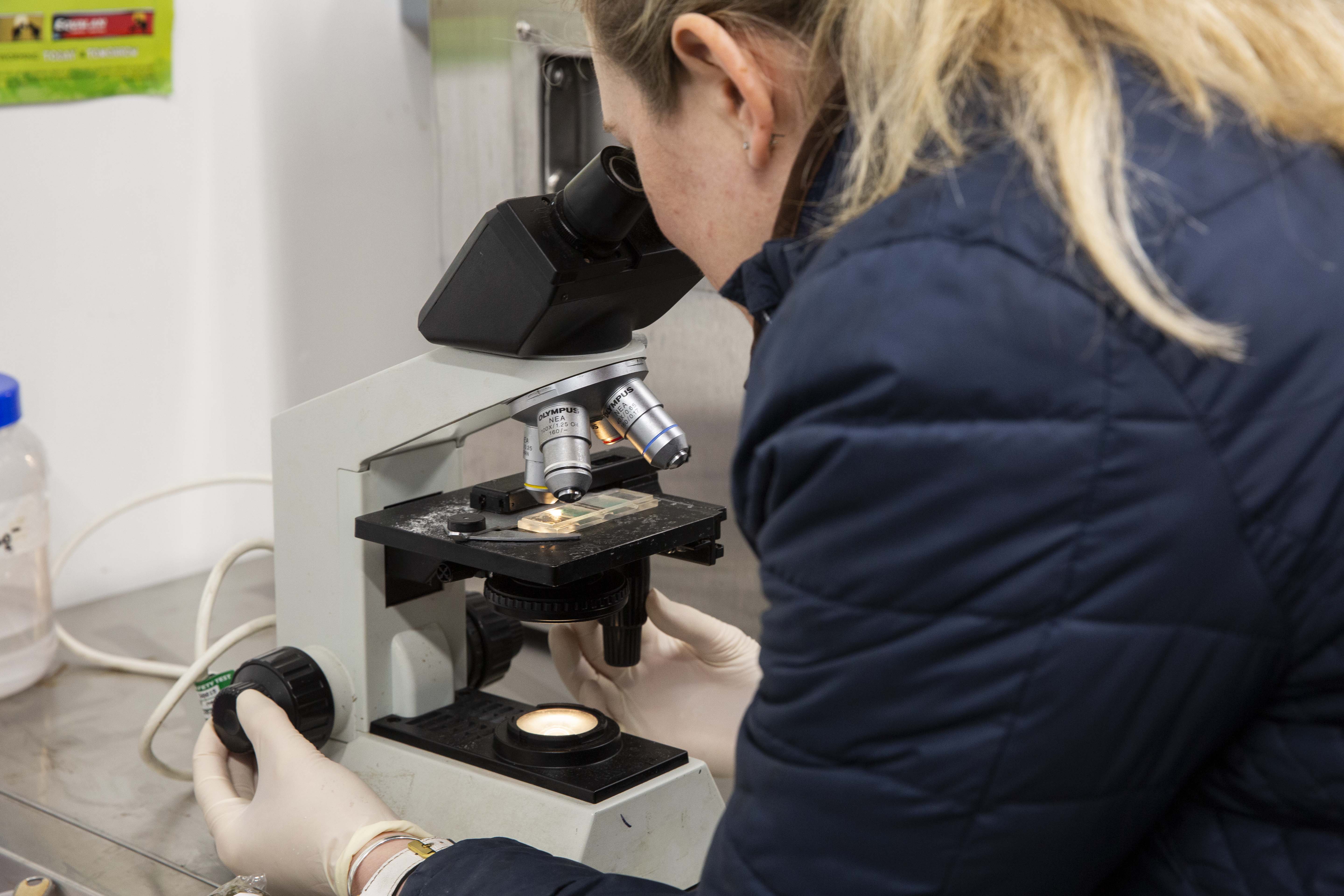Services
Worm Care Packages
Paton and Lee offer annual worm care packages to make worming your horse as simple and cost effective as possible. With ever increasing levels of resistance to anthelmintics (wormers), a targeted and responsible worming protocol is very important.
For worming peace of mind we offer 3 levels of worm care packages (for adult horses over 2 years with known worming history and appropriate pasture management):
For £57.50 a year, our Worm care Original includes:-
- Three worm egg counts each year between March and November (excludes any treatment required if worm egg count >250 eggs per gram).
- 1 Equest Pramox® (treatment up to 700kg) for effective larvicidal and tapeworm treatment once during the winter period (December to February).
- Professional veterinary worming advice tailored to your horse’s individual needs and management.
For £75.00 a year, our Worm care Advanced includes:-
- Three worm egg counts each year between March and November (excludes any treatment required if worm egg count >250 eggs per gram).
- 1 EquiSal Saliva test incl free postal bag, to be used late autumn/ winter to determine the need for Tapeworm treatment.
- 1 Equest® (treatment up to 700kg) for effective larvicidal treatment once during the winter period (December to February) – can be swapped FOC for an Equest Pramox should the EquiSal Saliva test results show this is required.
- Professional veterinary worming advice tailored to your horse’s individual needs and management
For £135.00 a year, our Worm care Plus includes:
- - Three worm egg counts each year between March and November (excludes any treatment required if worm egg count >250 eggs per gram).
- - A blood sampling fee (this excludes any visit fees incurred).
- - Outside laboratory fees for both tapeworm ELISA and encysted small red worm ELISA including postage (excludes any treatment if required depending on test results).
- Professional veterinary worming advice tailored to your horse’s individual needs and management
For worming advice for foals and youngstock, please do not hesitate to call us on 01376 513369 and we will be happy to advise you.
Please note that the packages do not include any additional wormers required if very high worm levels are found on a worm egg count. Veterinary advice about the most suitable wormer to use in these circumstance will be given. The package also excludes and postage and packaging, so if you require the package to be sent out, P&P for this will be extra.In addition to worming at the right time with the right wormer, pasture management is essential as a part of a worming protocol:
- Within a population of horses, 80% of the worms are present within 20% of the horses and therefore worm egg counts must be performed on all horses within a herd.
- Regular removal of droppings from the pasture is essential. This should be performed at least twice weekly during the grazing season (March to November) and once weekly between November and March. If the autumn and winter months are mild and wet (as in previous years), twice weekly removal must be continued year round.
- Paddock size is important: Overstocking should be avoided: Ideally fields should contain no more than one or two horses per acre, as horses lower down the pecking order will be forced to graze the rough pasture close to defaecation areas where worm burdens will be higher.
- Large paddocks should be divided so that they can be alternately grazed and rested to reduce pressure on pastures.
- Very small paddocks should be avoided with youngstock as the pasture can develop extremely high larval counts particularly if droppings are not regularly removed.
- Harrowing is not as effective as removal of droppings from pasture. Harrowing is only successful in dry, hot conditions. In damp conditions, harrowing simply spreads worm eggs and larvae over the pasture, thereby increasing pasture contamination.
- Pastures should be rested for at least 5 months but it should be noted that worm larvae can live for years both on pasture and in horses, so simply resting a pasture does not guarantee it will be worm free. Removal of droppings from pasture is essential.
- Grazing pasture with sheep or cattle, which act as biological vacuum cleaners can be helpful. Worms that affect horses are host specific and generally cannot survive in sheep or cattle.
- Horses should not be treated with a wormer and then moved to a new pasture as this simply encourages resistant worms to multiply. Horses should ideally be treated and not be moved to new pastures for at least 3 weeks.




